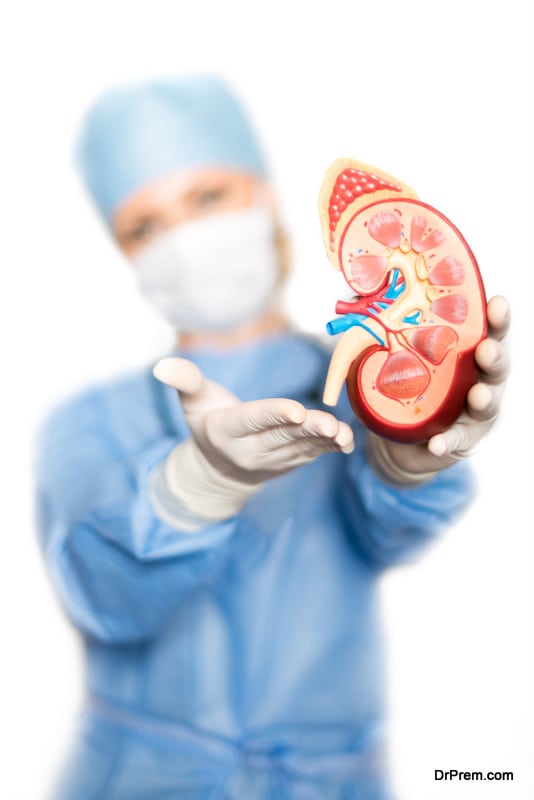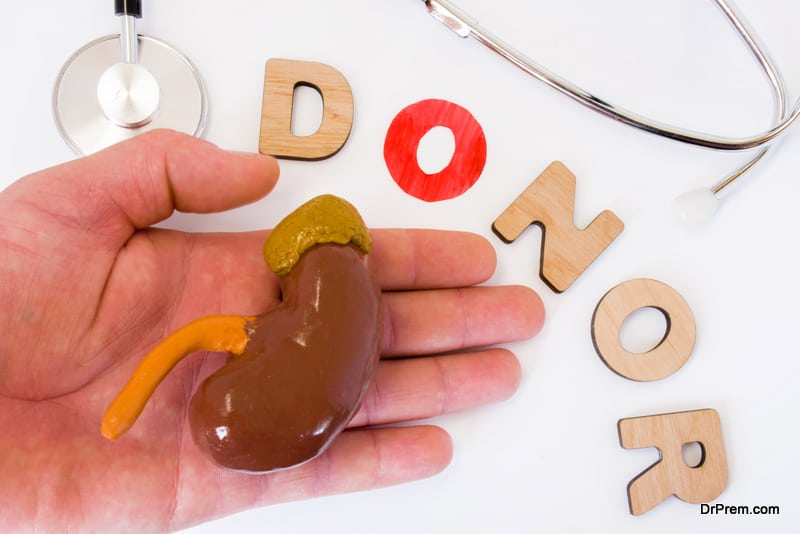Not everyone can say they’ve saved a life. Police officers, paramedics, firefighters – all of these professions have the potential to save a life. But what if you’re just an everyday person? Someone who is young, healthy, and willing to help another person in need? This is where organ donorship comes into play. Whether you choose to be an organ donor after you die or are willing to donate a kidney or bone marrow while being alive, being an organ donor is a big decision that could save someone’s life. Read on to learn more about the organ donor process and how to decide if it’s right for you.
Living Donor Process

Although most organ donations take place after a person is deceased, there are many living donor options as well. Many of these donations are between family members or loved ones, although some donations are made to complete strangers. There are only a few organ donations that can occur when the donor is still alive. These include:
- Kidney (one)
- Lung
- Pancreas
- Intestines
- Liver (two lobes)
The reason these organs are donated during life is because the body can either function without them or they are an organ that regenerates. If you are born with two kidneys, your body can function with just one, meaning you can donate one of your healthy kidneys. When you donate two lobes of your liver, these will actually regenerate over time, bringing your liver back to its original size. Although the lungs, pancreas, and intestines do not regenerate, your body can function normally without the entire organ.
Living donors can also donate living tissue in some cases, as well as blood and bone marrow. These things are easily regenerated in the donor’s body. Other donated tissue includes:
- Amnion fluid (following childbirth)
- Skin
- Bone
- Blood
- Healthy bone marrow cells
As rewarding as being a donor is, it doesn’t come without risk and recovery. Donors must undergo a screening process to ensure that they are a suitable donor. Sadly, just the desire to donate and help someone isn’t enough. Vigorous tests are performed to ensure the potential donor is in good health both physically and mentally. Physical health is important for obvious reasons. You cannot donate an unhealthy organ or one that is not functioning properly, as your mental and psychological health as a donor is extremely important as well. Donation centers must determine that the donor will not experience any adverse psychological effects following the donation process. These include feelings of regret and as if a piece of you is missing. These feelings are rare though, as most donors feel an overwhelming sense of satisfaction and hope at the thought of giving life to someone in need.
In terms of physical health, desirable donors are generally between the ages of 18 and 60 and in overall good health. This means they are of a healthy weight and have no previous instances of diabetes, cancers, heart disease, kidney disease, high blood pressure, or any other conditions that would put them or the recipient in danger. It’s also important for donors to realize they will undergo an otherwise unnecessary surgery and recovery process. Some financial aspects must also be considered. Some health and life insurance companies may not offer the same amount of coverage following the donation process. Donors must also consider time off from work to recover from the procedure and the inherent risks that accompany any major surgery.
Deceased Donation Process

Most people are more than willing to donate their viable organs post mortem. This means that after you die, the hospital can salvage and use any of your organs that are suitable for donation. With the loss of one life, you are breathing life into someone else. There’s really no downside to this process although some family members and loved ones are troubled by the idea of “dissecting” their family member’s body. Most individuals make this decision long before they die. You can document it in your will and many states record it on your driver’s license in case of a tragic or unexpected accident. Some family members may also make the decision post mortem, especially if the deceased is extremely young and in excellent physical health.
The first step in becoming a deceased donor is registering with the state in which you live. Believe it or not, patients must die in a specific way under specific circumstances in order for their organs to be used. Most often, individuals who wind up being donors are hospitalized due to illness or an accident which involves head trauma, stroke or a brain aneurysm. Doctors must keep blood and oxygen flowing to the organs to keep them healthy prior to removal. When a patient is rushed to the hospital under these circumstances for medical attention, their position as a donor isn’t yet considered. The hospitals’ only concern at that point is saving the patient’s life. If it becomes clear this is not an option, attention is then turned to preserving the organs for donation.
Once this decision is made, the hospital will contact the Organ Procurement Organization (OPO). This organization will then send out a representative once it’s determined that the deceased is a suitable donor. When it comes to organ transplants and donations, time is of the essence. Once the OPO determines that the organs are suitable for donation and that this aligns with the deceased person’s wishes, they will contact the Organ Procurement and Transplantation Network (OPTN) which runs the nation’s database for individuals awaiting transplants. It’s through this process that a viable recipient is chosen. This is determined based on need, if the donor and recipient are a match, and the distance between the two parties.
Often, the recipient is chosen based on where the deceased person is located. Once a match is made, the process moves quickly in order to keep the organs viable for transplant. A surgical team will remove the organ and immediately transport it to where the recipient is waiting. Organs remain healthy for a very short time following removal. This means that the surgical team must work quickly. The organ is transported and implanted in the recipient almost immediately. Once the transplant is complete, doctors at the recipient hospital will monitor the patient’s reaction and acceptance of the new organ. The survival and success rate of most organ transplants is very high.
Donating an organ, whether you are dead or alive, is not a decision to be taken lightly. But it’s also one that could save a person’s life. It’s something to consider now and to discuss with your family and loved ones prior to death.
Article Submitted By Community Writer




